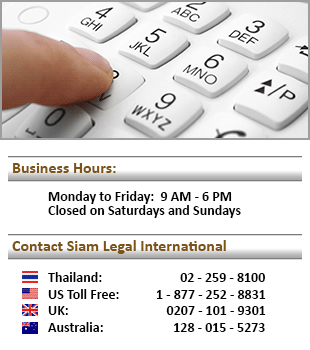Marriage Registration in Thailand. Thailand, renowned for its natural beauty and rich cultural heritage, is a popular destination for couples seeking a unique and enchanting wedding experience. However, for a marriage to be legally recognized, it is crucial to understand and follow the registration process. This article provides a comprehensive guide to marriage registration in Thailand, covering eligibility criteria, required documents, and the steps involved in formalizing a union in the Land of Smiles.
I. Legal Requirements for Marriage in Thailand
A. Eligibility: Both parties must be at least 17 years of age and mentally competent to consent to marriage.
B. Prohibited Relationships: Thai law prohibits marriage between close relatives, such as siblings and cousins.
C. Single Status Affidavit: Foreigners are required to provide a single status affidavit, affirming that they are not currently married.
D. Parental Consent (if applicable): Individuals under 20 years of age must obtain consent from their parents or legal guardians.
II. Required Documents for Marriage Registration
- Passports: Copies of the passports of both parties, along with a photocopy of each person’s visa or entry stamp.
- Single Status Affidavit: This document, obtained from the respective embassy or consulate, certifies that both parties are legally free to marry.
- Thai Translations: If any of the documents are in a language other than Thai, they must be translated by an authorized translation service and certified by the Thai Ministry of Foreign Affairs.
- Proof of Residency: Non-residents may be required to provide proof of residency in Thailand.
- Parental Consent (if applicable): If either party is under 20 years of age, parental consent must be obtained and documented.
III. Marriage Registration Process in Thailand
A. Visit the District Office (Amphur): The marriage registration takes place at the local district office, also known as the Amphur.
B. Submit Documents: Both parties must appear in person at the Amphur and submit the required documents.
C. Witnesses: Two witnesses are typically required to attend the registration. These witnesses must be at least 21 years of age and have their Thai national identification cards.
D. Ceremony and Registration: A brief ceremony may be conducted, followed by the signing of the marriage registration documents.
E. Marriage Certificate: After the registration, a marriage certificate will be issued, validating the union.
IV. Post-Registration Considerations
A. Legalization for International Use: For international recognition, the marriage certificate may need to be legalized by the Ministry of Foreign Affairs and, if necessary, by the respective embassy or consulate.
B. Updating Immigration Status: For foreign spouses, it may be necessary to update their immigration status to reflect their marriage.
Conclusion
Registering a marriage in Thailand is a straightforward process that, when followed correctly, culminates in a legally recognized union. By understanding the legal requirements, preparing the necessary documentation, and following the registration process, couples can embark on their marital journey in the Land of Smiles with confidence and joy. The marriage registration process in Thailand is a testament to the country’s commitment to celebrating love and providing a welcoming environment for couples from around the world.


